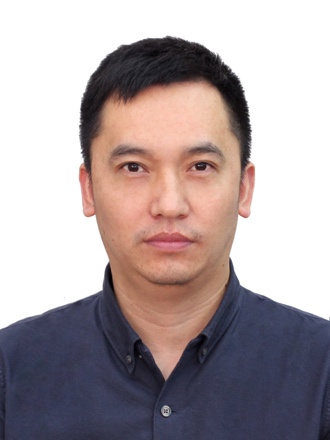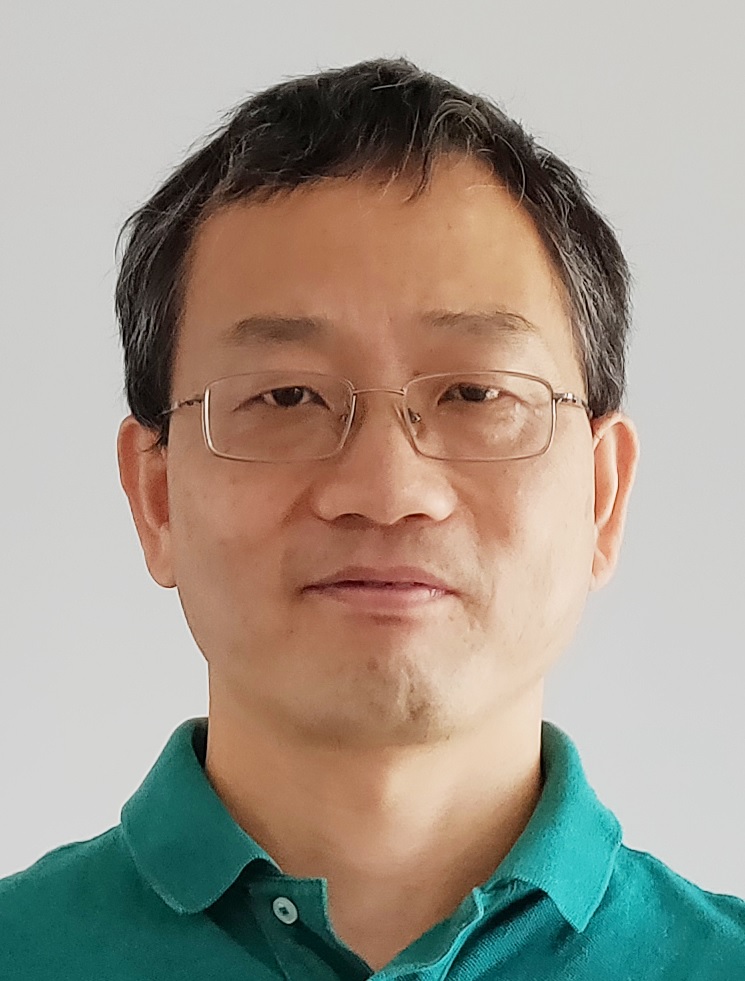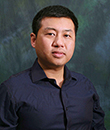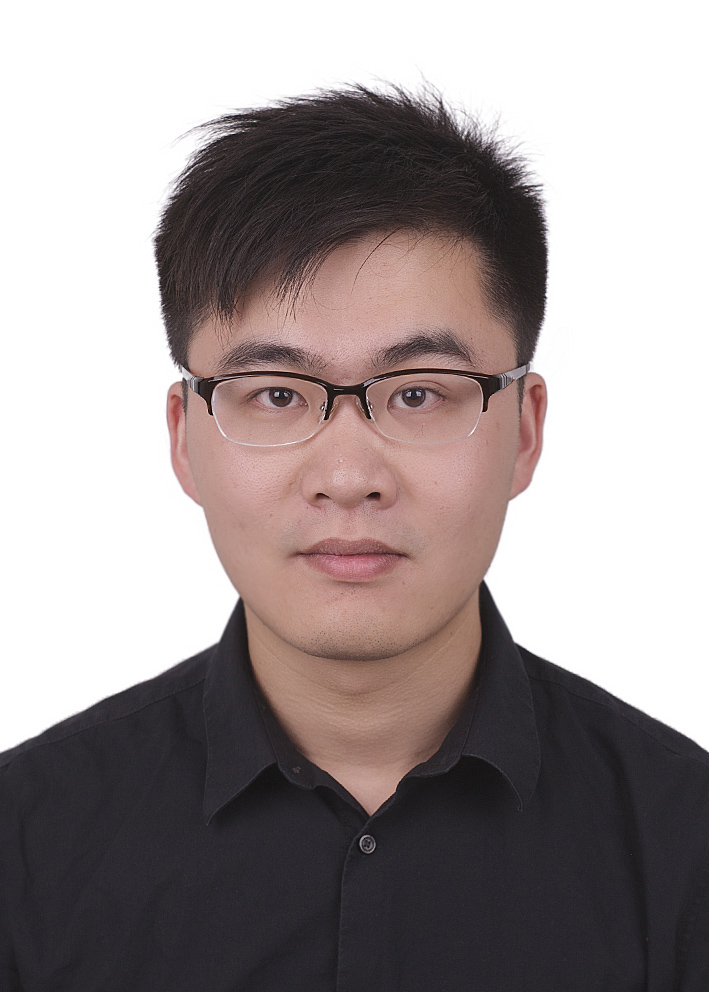Keynote: Prof. Edward A. Lee
Title: Reactors for Real-Time Systems
Abstract:
Concurrent software based on publish-and-subscribe (e.g. ROS) and actors (e.g. Erlang) are sometimes used to realize distributed real-time and robotic systems. However, these concurrency models have serious flaws. Broadly, they compose software components that have private state and communicate with each actors via message passing. The message-passing mechanisms, however, are less deterministic than they could be. In this talk, I will describe some simple challenge problems that are common in distributed real-time systems and extremely difficult to solve using either actors or publish-and-subscribe. I will offer an alternative model of computation that we call "reactors" that solves these problems simply and elegantly and that is able to leverage decades of results from the real-time systems community. The reactors model is being implemented in a coordination language Lingua Franca.
Biography
Edward A. Lee has been working on embedded software systems for 40 years, and after detours through Yale, MIT, and Bell Labs, landed at Berkeley, where he is now Professor of the Graduate School in EECS. His research is focused on cyber-physical systems. He is author of leading textbooks on embedded systems and digital communications, and has recently been writing books on philosophical and social implications of technology.
For more information, please see his webpage at https://ptolemy.berkeley.edu/~eal/index.html.
Invited speaker: Prof. Deji Chen
Title: IIoT - Standards and Practices at Steel Mills
Abstract:
In this talk we describe our IIoT practices for intelligent equipment management in the steel mills. Steel manufacturing is an important and high value industry segment. With connectedness and sufficiently collected data, IIoT adds intelligence to equipment management. Intelligent management means, with deep understanding of the devices in a production line, monitoring their changes and trends, for better usage, detection, prediction, repair, inventory, etc., in order to reduce cost. Our practices at Baosteel resulted in an IIoT application with three core components, a platform, an expert system, and a set of standards. The platform forms the basis of every application, the expert system provides the real value, and standards enable quick extension and duplication. For the iron manufacturing plant, it has reduced maintenance personnel by 30%, unscheduled stoppage by 30%, and repair cost by 20%.
Biography
Dr. Deji CHEN, chairman of Proudsmart, research fellow at the Computer Science Department and technical director of “Industry 4.0 - Smart Factory Lab”, Tongji University. Chen has been involved in process automation for two decades. He was among the first people who created OPC, and has worked on different fieldbuses including on creating the WirelessHART standard. He co-authored two books on industrial wireless sensor networks, one of which won the Raymond D. Molloy Award as the best seller. Chen is an IEEE senior member and an ISA senior member, with more than 60 publications.
For more information, please see his webpage at https://www.cs.utexas.edu/users/cdj/.
Invited speaker: Dr. Nan Guan
Title: Real-Time Scheduling and Analysis of Parallel Real-Time Task Models
Abstract:
Real-time systems are playing a more and more important role in our daily life as computing is closely integrated into the physical world. Multi-cores are becoming mainstream platforms for modern real-time systems, to meet their increasing requirements in high performance and low power consumption. To fully utilize the capacity of multi-cores, software must be parallelized. Therefore, we are facing an emerging challenge in real-time system design -- how to build parallel real-time software? In this talk, I will introduce some of our recent work on real-time scheduling and analysis of parallel real-time task models.
Biography
Dr. Nan Guan is an Assistant Professor in Department of Computing, The Hong Kong Polytechnic University. His research interests include the design and analysis of real-time systems, embedded systems, cyber-physical systems and Internet-of-Things (IoT) systems. He received the EDAA Outstanding Dissertation Award in 2014, the Best Paper Award of RTSS in 2009, the Best Paper Award of DATE in 2013, the Best Paper Award of ACM e-Energy 2018 and the Best Paper Award of ISORC 2019. He served as the TPC co-Chair of EMSOFT 2015, ICESS 2017, SETTA 2019, the TPC Track Chair of RTAS 2018.
For more information, please see his webpage at http://www4.comp.polyu.edu.hk/~csguannan/.
Invited speaker: Dr. Xiaoyi Fan
Title: Edge Computing in Energy Internet
Abstract:
China's State Grid will create a huge ubiquitous internet of things in next ten years. The ubiquitous IoT networks shed new light to construct an intelligent, reliable and efficient power grid with advanced information technology,which provide opportunities to improve the reliability of the electric delivery system and play an important role in preventing severe safety accidents. Our intelligent edge computing terminal is essential in a new generation of IoT network for AI inference, real-time industrial applications, container-based app management and data encryption.
Biography
Xiaoyi Fan is the CTO of Jiangxing Intelligence Inc, an edge computing startup, which has raised Series A funding, with venture investiment from Sequoia China, Baidu Ventures and Green Pine Capital Partners. He is an Honorary Postdoctoral Research Fellow in the Department of Electrical and Computer Engineering at The University of British Columbia. He received B.Eng. from Beijing University of Posts and Telecommunications in 2013, and Ph.D. from Simon Fraser University in 2018. He is a recipient of the Chinese Government Award for Outstanding Self-finance Students Abroad (2017) and the NSERC Postdoctoral Fellowship (2019). His works have been published in ACM Ubicomp, e-Energy, IEEE TMC, IEEE/ACM ToN, etc. His research interests include the Internet of Things, edge computing, and deep learning.
For more information, please see his webpage at http://www.ece.ubc.ca/~xiaoyif/.
Invited speaker: Dr. Xueliang Ren
Title: Haier COSMOPlat- The exploration and practice of IIOT platfrom
Abstract:
COSMOPlat is an industrial Internet platform independently developed by Haier based on more than 10 years of mass customization practice and accumulation. It is a mass customization solution cloud platform that is oriented to the digital, networked and intelligent demand of manufacturing industry and based on massive data collection, aggregation and analysis to support the full process, full elements and full cycle resources ubiquitous connection and elastic supply efficient configuration of manufacturing. It includes four core layers: data acquisition and edge, IaaS layer, PaaS, SaaS) and industrial safety protection management system. COSMOPlat has seven core modules, including user interaction, R & D and design, precision marketing, intelligent procurement, intelligent manufacturing, intelligent logistics, and intelligent service. These modules are productized and packaged on COSMOPlat platform to form callable micro service components, which can be used by all enterprises, including consumer electronics, home appliances, textile and clothing, and ceramics, to realize transformation. COSMOPlat has been verified by Haier itself. Haier has replicated this model in 11 global Internet factories, with the product R & D cycle shortened by 50%, production efficiency increased by 60%, product non warehousing rate reached 72%, CCC (capital turnover days) reached - 10 days, while the industry is 30-40 days; COSMOPlat has been verified in cross industry replication, and has been replicated to 12 industries, such as construction ceramics, home furnishings, agriculture, clothing, etc.
Biography
Xueliang Ren is the Vice GM of Haier COSMOPlat IIoT platform, Ren has been involved in Discrete industry for OT/IT around 10 years. As an expert of China-Germany (AGU) Training 4.0 Expert Group, he empower the transition of science universities and vocational schools for IIoT, carry on virtual factory IIOT test bed with IEEE. His interests include the Internet of Things, edge computing, and SaaS.




